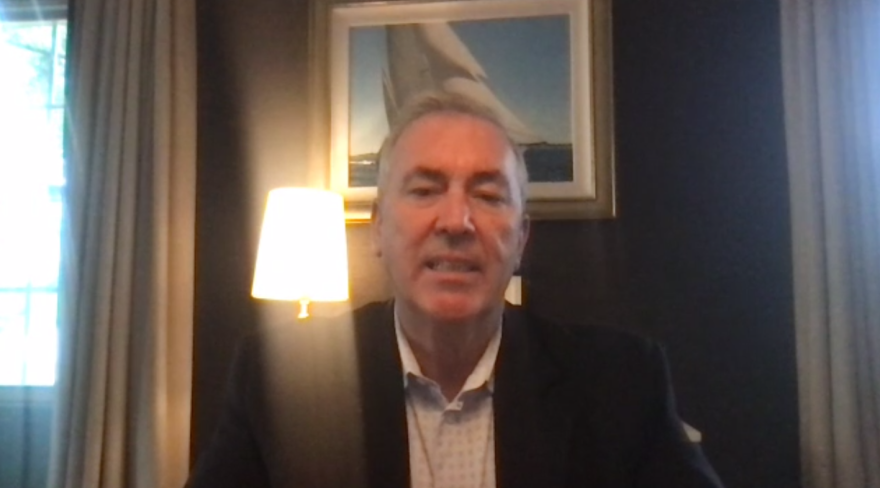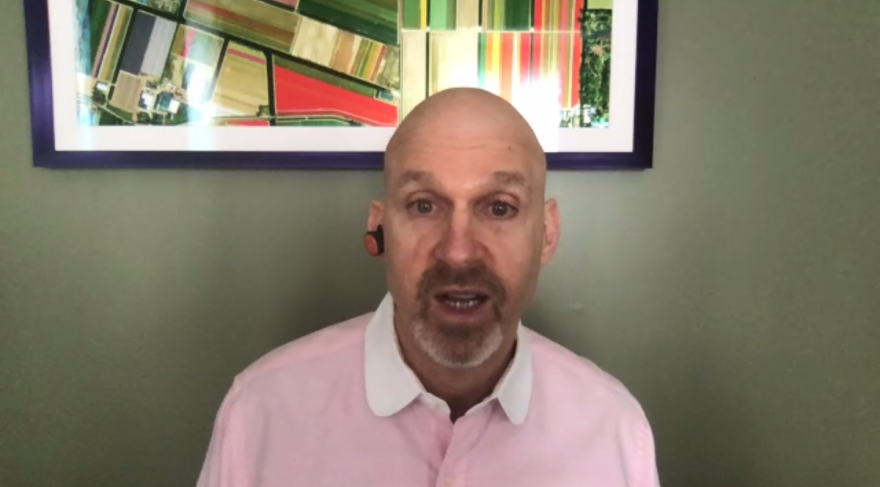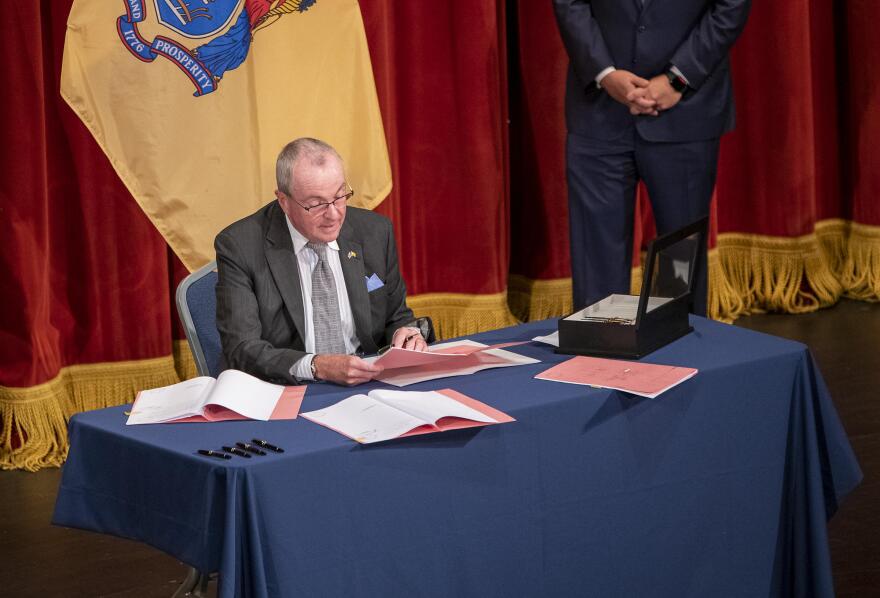Nursing home finances have come under scrutiny during the COVID-19 pandemic. Now the New York State Legislature is considering a measure to limit how much nursing homes can profit, which proponents say will mean better care for residents and opponents say will just harm the industry.
Legislation’s progress so far
It was during a mid-February press briefing that Gov. Andrew Cuomo first publicly voiced supportof New York state deciding how much nursing homes can profit.
“If you’re a for-profit nursing home, I believe it should be mandated how much you put back into the facility and how much profit you can make,” he said.
Cuomo later included the proposed profit cap, also called a medical loss ratio, as an amendment to his 2021 budget proposal. It would mandate nursing homes put at least 70% of their revenue toward caring for residents.
Both the state Senate and Assembly have since passed their own separate versions of the profit cap over the last five weeks. The two sides will need to come to an agreement if the legislation will become law, but both their bills would also mandate at least 70% of revenue go toward care.

“We looked at the spending on these pieces of a nursing home’s budget,” said Assemblymember Richard Gottfried, a Manhattan Democrat and sponsor of the Assembly version, just prior to the Assembly floor vote March 9, “and there are a lot of nursing homes that spend a lot more than 70% on what this bill calls for. They’re the better nursing homes. And the really bad nursing homes that you wouldn't want your family anywhere near, they're the ones that spend a whole lot less.”
The bill also had the support from Western New York legislators, like Assemblymember Monica Wallace, a Cheektowaga Democrat.
“Nursing homes, it's not an industry that people should profit from,” she said. “Their primary function shouldn't be to make a profit. It should be to care for some of our most vulnerable people and get them as well as they possibly can and have them live as comfortably as they can.”
Cap would mean more money for nursing staff
The biggest part of care is the staff. The Assembly version specifies that at least 60% percent of revenue goes toward paying nurses, while the Senate version says at least 40%.
That’s good news either way for SEIU 1199, the largest health care union in the nation. It’s held rallies outside nursing homes throughout the state in support of the profit cap and other reforms, like a safe staffing bill.
Marshall Bertram, an administrative organizer for SEIU 1199, led a rally in February outside the Rosa Coplon Jewish Home and Infirmary, a non-profit nursing home in Getzville that will soon be taken over by Elderwood, a for-profit nursing home chain.

“[There] are not-good facilities that are taking more money out of residents’ beds and are taking more money away from workers,” said Bertram, speaking generally of some for-profit nursing homes.
A New York State Attorney General report released in January found nursing homes with lower staffing ratings from the federal government had higher COVID-19 mortality rates; although a report by The Empire Center, a conservative think tank, argues the AG had incomplete data, and its own analysis shows less of a correlation.
“We want to provide a system in New York state that holds owners accountable,” Bertram said, “and that makes sure we have the care hours that residents need to feel at home, to feel safe and to be taken care of.”
Nursing homes say they’re already financially hurting
Almost two-thirds of New York’s over 600 nursing homes are for-profit facilities. They’re arguing the profit cap will put them out of business.
Michael Balboni, executive director of the Greater New York Health Care Facilities Association, a nursing home trade group, said nursing homes are already hurting for money.

New York has the largest gap in the nation — $55 per day — between what it reimburses nursing homes to care for a Medicaid resident and what it actually costs to care for that resident, trade groups often argue.
“Nobody makes money on Medicaid,” said Balboni, who is a former New York state legislator. “The irony of talking about quote ‘reforms,’ when you're not talking about additional resources, is that you're rearranging the deck chairs on the Titanic.”
Related party transactions hide profits
However, many nursing homes are only making themselves appear to be hurt for cash, according to Richard Mollot, executive director of the Long-Term Care Community Coalition, a New York City-based group that advocates for nursing home residents.
A 2017 Kaiser Health News analysis found nearly three-quarters of U.S. nursing homes use something called related party transactions, meaning they hire they or their relatives and associates' companies for services.
“Here in New York, we see that a lot. The owner of the nursing home will actually sell the building to an entity that he or she owns, and then [pay] rent back to a company that he owns or she owns,” Mollot said.

A New York State Attorney General report found some nursing homes transferred funds to related parties instead of investing in staffing and personal protective equipment during the pandemic. In one case before the pandemic, the AG prosecuted a Otsego County nursing home owner, Joseph Zupnik, who diverted $14 million to his own companies and relatives during a three-year period.
“And as a result of that [kind of behavior], nursing homes come to our legislators and the governor and they say, ‘Oh, we are operating on razor-thin margins,’ or, ‘We have even a negative balance,’” Mollot said. “But, in fact, that is not accurate, because the money is being pulled away.”
Cuomo, as part of his budget amendments, has proposed limiting related party transactions that are over fair market value, as well as payments to employees who are not actively providing services at the nursing home.
Legislators, like Gottfried, have said the profit cap will help keep some money away from related party transactions.
“I want people who are put in a nursing home to be in a facility that is run by people who are motivated by caring for them,” he said, “and spending the money we give them on patient care and not siphoning it off through paper corporations and other gimmicks to themselves or their friends.”

Balboni argues New York should increase Medicaid rates to incentivize nursing homes to provide good care.
“Instead of always being punitive, why don't we say if you maintain a five-star rating and you have really done the right thing as it relates to quality of care, you get a bump up in Medicaid?” he said.
Mollot called that idea “utterly outrageous and self-serving.”
“I just can't imagine anything more despicable than contracting to provide services for a very vulnerable population at a rate that you've accepted voluntarily — you don't have to be a nursing home on Medicare-Medicaid — and then turn around and say, ‘Well, actually, we're not going to meet these standards, unless you give us more incentives,’” he said.
New Jersey already passed profit cap
New York would not be the first state to limit nursing homes’ profits.
The New Jersey State Legislature passed its own profit cap last summer. It’s even harsher than New York’s proposal, mandating nursing homes put at least 90% of revenue toward resident care.
New Jersey is still in the process of implementing the cap. Mollot recently testified before the New Jersey State Legislature, asking them to implement the law sooner rather than later.

“The major problem in the nursing home sector is we have good rules, but the nursing home industry is allowed to flout those rules with impunity day after day after day,” he said.
However, Balboni argues New Jersey should serve as a cautionary tale for New York. He called New Jersey’s profit cap “completely unworkable.”
“There are negotiations right now with the [New Jersey] social services agencies, who are developing the regulations to implement the legislation, and there's a lot of discussion back and forth as to how to implement it in such a way that you don't destroy what the economic model is currently for nursing homes,” Balboni said. “Frankly, I think that New Jersey did it in August and September, when the pain and the loss of the pandemic was so fresh in everybody's minds. There really was this take-no-prisoners kind of attitude against the industry. I think people now reflect that maybe that wasn't the best approach.”
Legislation’s future
Objections to the profit cap have also come from state Republicans, who are in the legislative minority. Republicans accounted for all but five of the 47 nay votes against the Assembly profit cap bill, and all but one of the 19 nay votes against the Senate profit cap bill.
Assemblymember Brian Manktelow, a Lyons Republican, said he worries the state is putting too much “pressure” on nursing homes.
“We are putting an undue amount of stress on these facilities, especially coming out of the COVID pandemic we're still in,” he said just prior to the floor vote in March. “Do we really know what they're up against financially? And we're putting more pressure on them.”
As of Wednesday evening, neither the Senate or Assembly had acted on each other’s version of the profit cap bill. The deadline for the state budget is Thursday.
Balboni said he’s yet to see a “consensus emerge” on the profit cap.
“You have various standalone provisions that don't match between the Senate and the Assembly,” he said. “So there's a question as to whether this will be done within the context of a budget or done later. We know that these provisions will get a hearing, and there's things that we look forward to engaging on as the best way to move forward on this.”




